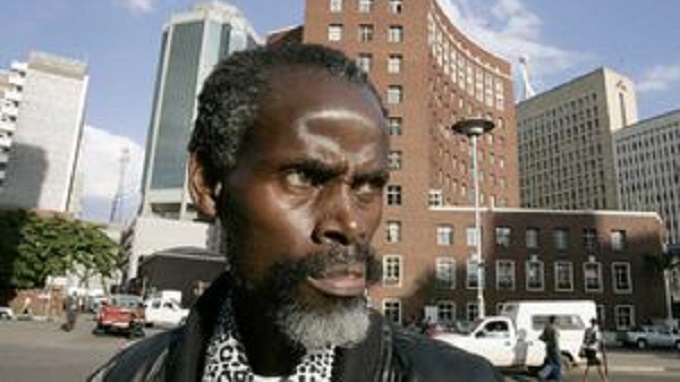
The Sunday News

Bruce Ndlovu, Sunday Life Reporter
WHEN I last spoke to him in person, Cont Mhlanga’s voice seemed shaken, as if his usual steadiness had deserted him.
The more he spoke, the more his voice seemed to quiver, as if some great unseen hand was reaching down his throat and diluting the anger in his chest with a dash of sadness.

The late Clive Chigubu
This was back in April, and I had just broken the news that Clive Chigubu was bedridden, having been diagnosed with cancer a few months prior.
In showbiz, it was all hands-on deck, with artistes in Zimbabwe doing what they usually do in a time of crisis – coming together and scrambling for resources to save one of their own.
Amidst the outpouring of collective sympathy for an ailing comrade some, like me, sought the voice of Cont, Clive’s former mentor and for so long the go-to captain for artistes when their ship finds itself on stormy shores.
Clive’s condition was now perilous and death’s terrifying knock, which only a week prior was unheard and distant, was now too loud and near for comfort.
So, this scramble for resources to save Clive at the 11th hour felt more than justified. As usual, against popular sentiment, Cont would have none of it.
He had been down this road a lot of times before and more often not, he knew it would lead to a dead end.
“Mzukulu, this is a very sad chapter in the lives of artistes in the country,” he said.
“For me personally, as captain in the industry before I retired, I always emphasised, from the first time we met during the pathetic departure of Solomon Skuza, followed by the pathetic departure of Don Gumbo, that artistes needed a welfare insurance for when things are difficult.
But artistes, don’t hear me, from that time until I retired.
Now that Clive is sick, artistes are going to come together, as if they didn’t know that these things can happen.”
It was easy to think that Cont, his voice faltering like that of a counsellor that had grown weary over the years from seeing his advice fall on deaf ears, was just another bitter old man casting unfair judgement on colleagues.
Cont at times, could be harsh and scathing on artistes and the arts in general.
As he grew older, he became a real father figure and at times, he did sound like the typical head of the household that young people spend the early years of adulthood trying to escape.
For a young artiste, for whom the world of celebrity is beginning to open up its cache of ungodly delights, Cont was a party spoiler.
Instead of nights filled with wild booze and partying, he wanted them to join the gym, eat healthy and maintain their bodies.
As an artiste, your body is the “business”, he would tell me.
The artiste’s body, he would say, is the one-way ticket out of the poverty that a lot of the country’s performing artistes grew up in.
Very often, his advice won him more enemies than friends.
No one likes a voice of reason in the midst of a party.
It is for this reason that Cont was so often disappointed, and loudly so.
Cont was a big dreamer but unlike some, he usually had the will and the genius to see his vision come to life.
Cont was one of those rare men whose dreams came in broad daylight, while they were awake, with their eyes wide open.
Indeed, we saw his dreams unfold, on prime-time television, in front of thousands of Zimbabweans on the small screen and on stage.
Cont’s dreams very often made for particularly spectacular viewing.
Who else but a compulsive dreamer could conjure up such productions as Stitsha or Amakorokoza?
He was the madman, the fool, who dared to rush where angels feared to tread, making Sinjalo, a comedy series that juggled the potentially explosive topic of tribe and identity with expert skill.
Lesser mortals, with such a potentially incendiary subject matter in their hands, might have fumbled it, watching it blow up in their faces as a nation watched on in horror.
It could have all ended in tears but yet every week, Zimbabweans only collapsed in heaps of laughter as Cont teased and taunted them with the silliness of their own tribal prejudices.
Sinjalo, was perhaps the first time that someone in the mainstream media looked at the issue of tribe with an unflinching eye and came out unscathed.
Cont, the big dreamer, managed to make Zimbabweans laugh together and, crucially, not at each other.
It was a feat of genius and in the stage humour of the likes of Chigubu one can see that the bravery and intelligence it took to make such a production was passed on to some Amakhosi alumni.
When you sat down and spoke with Cont, it became easily apparent why he went into the arts.
Last year, in December, a Sunday News crew managed to convince him to retrace the footsteps of King Lobengula as he left Bulawayo, with Major Allan Wilson and his forces hot on his heels.
What was meant to be a four-hour drive deep into rural Lupane instead turned into a mobile history tour, with Cont acting as our guide.
Just as your brain was chewing on a juicy piece of historical information that uKhulu had thrown your way, he would toss another little-known morsel your way.

Cont Mhlanga
Throughout that journey, one’s mind could never be at rest, as Cont knew which choice cuts of history he could dish up to keep you salivating and intrigued.
Once you listen to him tell these sometimes-fantastical tales you would get a sense of why he loved the arts so much.
He was a naturally born storyteller. He had a gift of telling a story in a way that was just irresistible.
He was the kind of man for whom you would buy a movie ticket so he could watch a film then retell it to you in his own words.
The experience would be better than actually watching it.
On his gifted tongue, even the most boring and mundane stories took new shape, springing into new and exciting life.
While he was obviously an intellectual, with an unparalleled wealth of knowledge, Cont at heart a still township boy.
When one sat down to have a conversation with him, he did not showcase his intellectual superiority by the use of big words or concepts to deceive people into beloving that he was “deep”.
Yes, Cont had “ate” books and was well read, but at heart he was still a street corner philosopher.
In a sense, he reminded you of that guy from your neighbourhood, who always on the corner, imparting wisdom to whoever gave him an ear.
The township philosopher is usually a maligned figure, shunned and ridiculed even though he seems to draw his wisdom from a seemingly bottomless well of knowledge.
You will find the township philosopher by the corner, coining new phrases for a few dollars to buy his favourite brew.
Because he was an easygoing and gifted storyteller, one would sometimes assume that Cont was cut from this same infectious cloth.
However, he was much more.
Yes, he was a township philosopher, a poet with a thousand stories to tell.
But through discipline, he moved with the determination of a man who had decided very early own that his knowledge would not die on a street corner in Nguboyenja with him.

Amakhosi Cultural Centre
How else could he have given birth to Amakhosi, a cultural centre whose very birth was in defiance of the widely held belief in the 1980s that professional theatre was the preserve of white people resident in the eastern half of the city?
As a township philosopher and dreamer, Cont was tired of people, particularly artistes, from the western suburbs being looked down upon.
In 2016, he told me of one painful encounter with a former ZBC disk jockey, which led to his lifelong dream to establish a radio station.
It would be a dream that he would eventually see come to life.
“There was a famous DJ at Montrose who changed everything for me,” he said.
One day I went with a group of Bulawayo artistes to the studio and he told all of us to go out because artistes from this city stink.
He said artistes from the township smell bad.
That day was the turning point for me.
I remember leaving the studio determined to run my own station.”
From that day, Cont became a self-appointed champion for artistes from the city’s townships.
Umkhulu lumsebenzi, the Amakhosi motto went, and indeed Cont recognised the enormity of the task at hand.
From the stage to television to radio and television, in the end he did it all.
He was a figure that loomed large on the city’s arts scene and there was very little that happened in Bulawayo that he seemed not to have had a hand in.
Ukhulu was a small man that cast a very large shadow.
As the outpouring of grief and admiration following his death last Monday has shown, he is likely to be even more adored and respected in death than he was in life.
Rest in Peace Mdladla.



